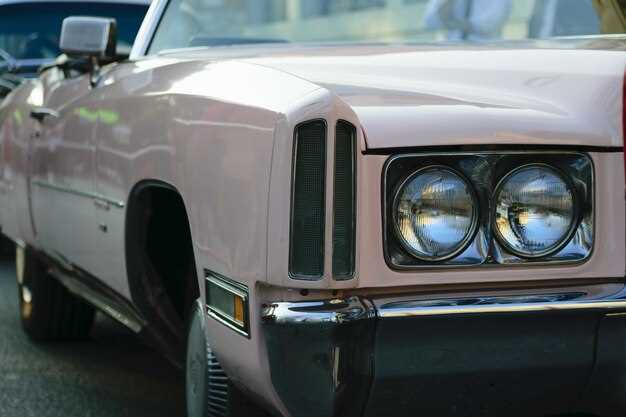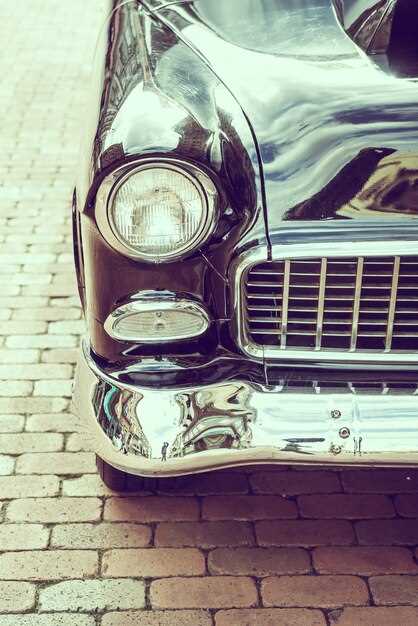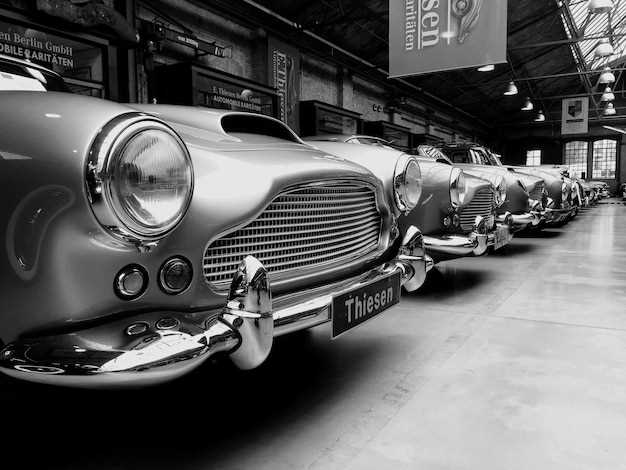
As the automotive market evolves, classic cars remain a steadfast investment opportunity for collectors and enthusiasts alike. The allure of these vehicles transcends mere nostalgia; they are tangible assets that hold and often increase in value. Savvy investors are increasingly looking to the classics, recognizing their potential not just for enjoyment, but as a strategy to enhance their portfolios.
In the world of collector cars, certain models stand out as pivotal choices for the next decade. These vehicles are not just remnants of automotive history; they represent a fusion of engineering excellence, cultural significance, and rarity. As demand surges, particularly for well-preserved examples, understanding which models to target can significantly impact both value and future appreciation.
Investing in classic cars requires a keen eye and a solid understanding of the market dynamics. This article will delve into the top classic cars poised to capture the attention of collectors and investors alike, highlighting models that promise substantial returns and embody the spirit of automotive passion. Prepare to explore a curated selection of vehicles that stand the test of time, not only for their design and performance but also for their enduring value in the collectible landscape.
Identifying High-Potential Classic Cars with Growing Collector Interest

Investing in classic cars requires a keen understanding of market trends and collector preferences. To identify high-potential classic cars, one must focus on specific makes and models that have been gaining traction among automotive enthusiasts. Renowned brands such as Ferrari, Porsche, and Jaguar often lead the list due to their historical significance and performance capabilities.
Moreover, limited production vehicles and those with unique specifications, such as rare color options or special editions, tend to attract more attention from collectors. For example, models like the Porsche 911 Turbo and the Ferrari 246 GT showcase exceptional engineering and are often seen as must-haves in any collector’s garage.
Another factor to consider is the condition of the car. Vehicles that are well-preserved, documented, and have a clear lineage typically fetch higher prices and pique collector interest. Restoration projects can also be valuable, provided they are executed with a deep appreciation for authenticity and originality.
Additionally, engagement in automotive events, auctions, and dedicated classic car shows can reveal emerging trends. Networking within these communities often sheds light on which cars are currently in demand. Look for indicators of growing collector interest, such as increased online searches, forum discussions, and social media buzz surrounding specific models.
Economically, consider investing in models that offer a blend of nostalgic allure and modern reliability. Cars that possess these characteristics are more likely to appreciate over the next decade, making them sound investment opportunities for serious collectors.
Ultimately, research and due diligence are essential. By staying informed about market movements and collector preferences, investors can identify classic cars poised for growth in both value and recognition within the enthusiast community.
Evaluating Market Trends and Investment Value of Specific Classic Models

Investing in classic cars requires a keen understanding of market trends and the potential value of specific models. As the collector car market continues to evolve, certain classic vehicles are gaining significant traction among investors. The value of a classic car is influenced by various factors, including rarity, historical significance, and overall condition.
One crucial trend to observe is the increasing interest in American muscle cars from the late 1960s and early 1970s. Models such as the Ford Mustang and Chevrolet Camaro not only have a dedicated fan base but are also experiencing a resurgence in demand, leading to a notable increase in their market value.
European classic cars, especially vintage Porsche and Ferrari models, have consistently shown strong investment potential. The value of these brands is bolstered by their racing heritage and engineering excellence, making them highly sought after at auctions and for private collectors.
Additionally, the condition and provenance of a classic car play vital roles in determining its investment value. Cars with original parts and documented history tend to fetch higher prices. Therefore, potential investors should conduct thorough research and consider expert appraisals when evaluating a specific model.
Emerging trends also highlight the growing demand for electric classic cars. As automotive technology shifts, classic electric models from brands like Tesla are starting to attract attention, demonstrating a unique intersection between traditional classic car culture and modern innovation.
In conclusion, understanding market trends is essential for evaluating the investment value of classic cars. By focusing on rarity, condition, brand heritage, and adapting to new trends, investors can make informed decisions about which models are likely to appreciate over the next decade.
Practical Tips for Maintaining and Insuring Your Classic Car Investment
Owning a classic car is not just about driving; it’s an investment that requires careful maintenance and proper insurance. Here are essential tips to help you preserve your classic car’s value.
Regular Maintenance: Schedule routine checks and services for your classic car to ensure it remains in pristine condition. This includes oil changes, fluid checks, and tire maintenance. Regular inspections will help identify potential issues before they become costly repairs.
Store Properly: Protect your classic car from weather elements by storing it in a garage or a climate-controlled facility. Consider using a car cover to shield it from dust and scratches. Proper storage prevents rust and other damage that can diminish its value.
Use Quality Parts: When replacing components, opt for high-quality or original manufacturer parts. Authenticity matters a great deal to collectors, and using inferior parts can affect both performance and resale value.
Documentation: Keep detailed records of maintenance, repairs, and modifications. This information is invaluable, not only for your own reference but also to potential buyers who appreciate a well-documented history.
Insurance Considerations: Invest in specialized classic car insurance. Standard auto insurance may not provide adequate coverage. A collector car insurance policy typically offers agreed value coverage, protecting your investment at its current market value.
Engage with the Community: Join classic car clubs and forums to exchange knowledge with other collectors. Networking can provide valuable maintenance tips and insurance recommendations, as well as opportunities for showings and events.
By following these practical tips, classic car owners can ensure their investment remains in top condition and retains its value in the years to come.




